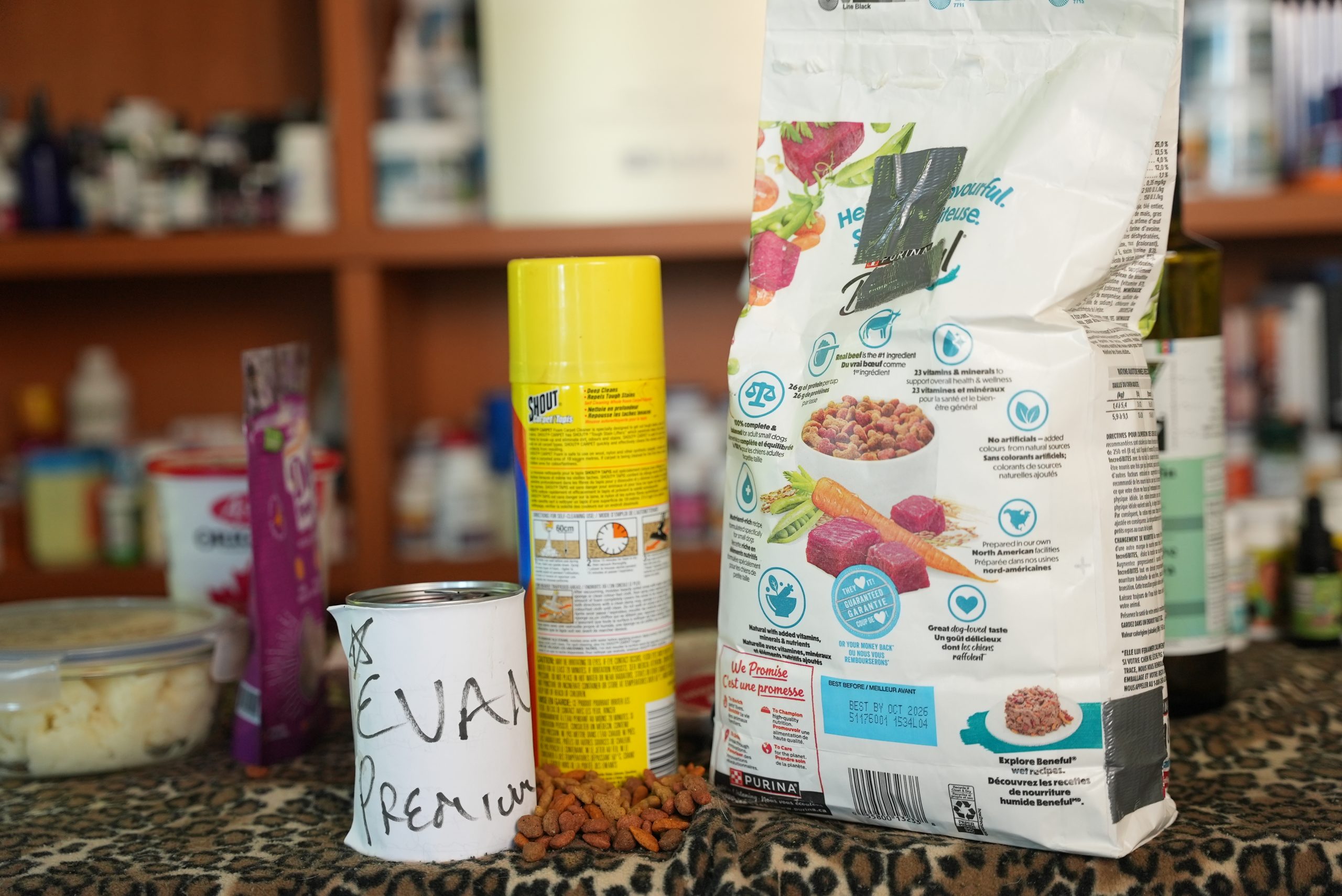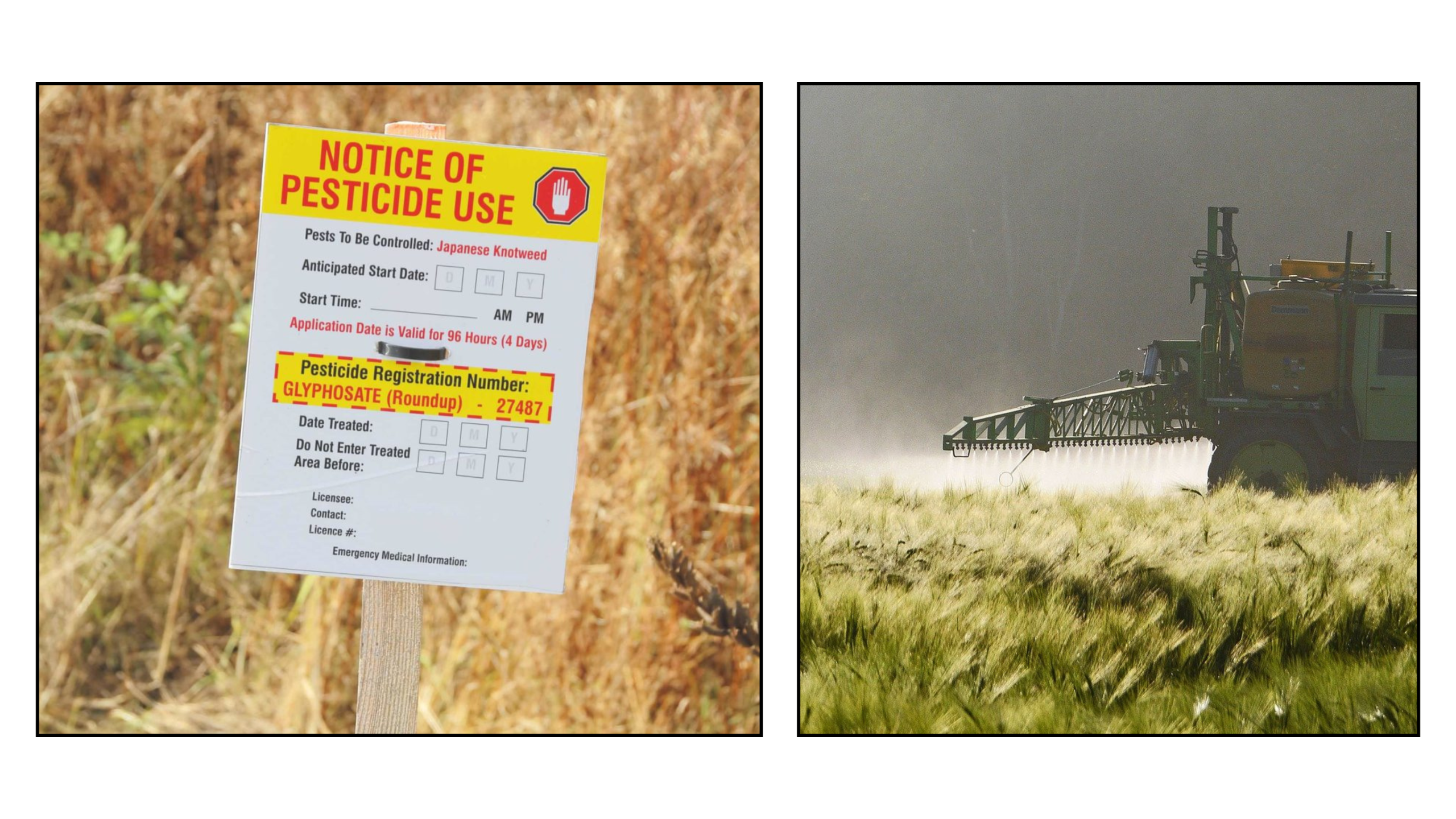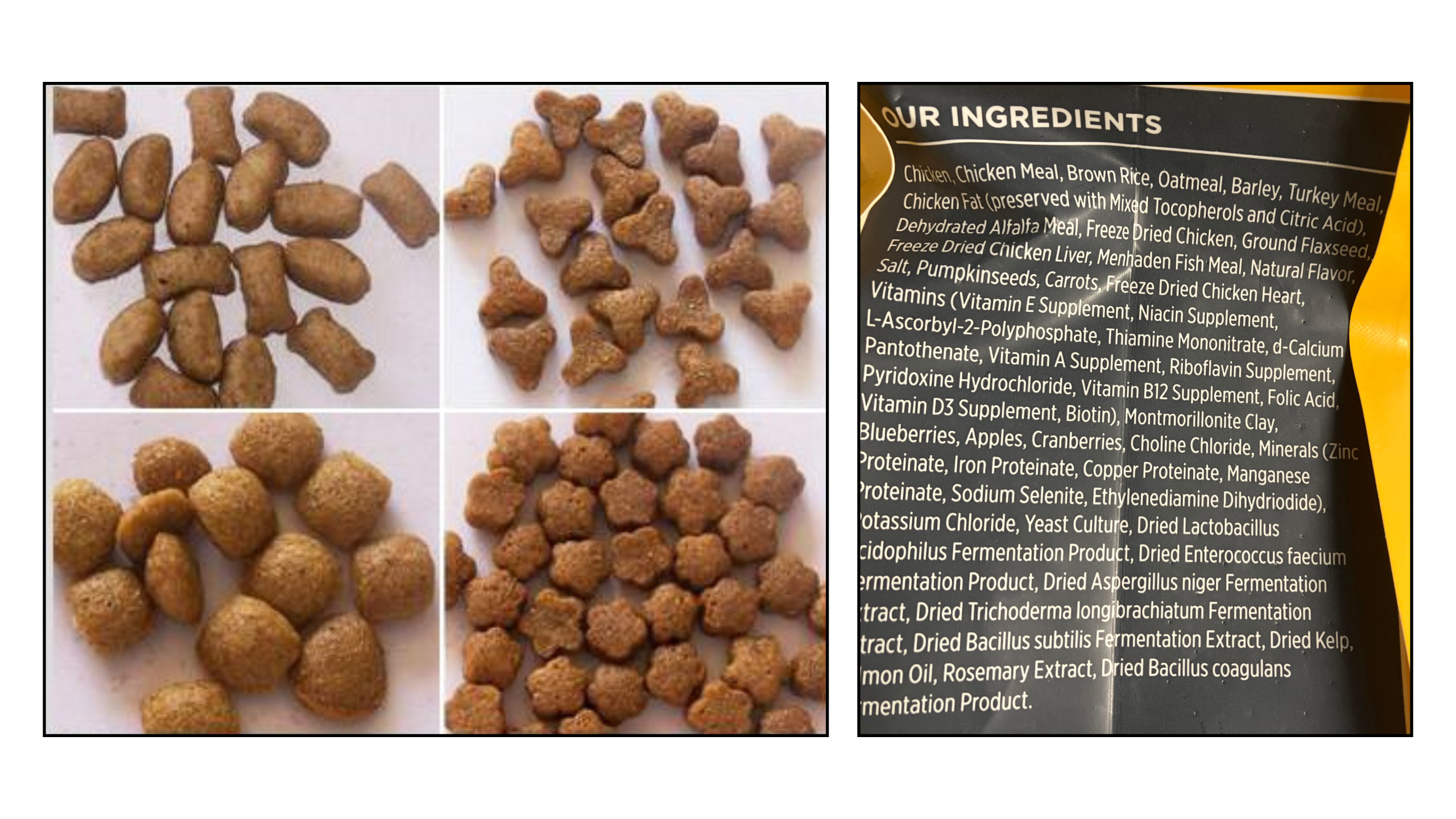What’s Poisoning Our Pets in 2025? The TRUTH + What I Feed My Dog and Cat
![]()
Why So Many Dogs Are Getting Sick in 2025: The Hidden Dangers in Pet Food
You’ve probably spent hours researching the best food for your pet, picking out brands that claim to be natural and made with real ingredients. But what if I told you that the very food you’re feeding them might be making them sick? From cancer to kidney disease, pets are facing health issues at an alarming rate—and what’s in their food could be a big part of the problem. In this article, I’ll break down the shocking truths about pet food, the hidden toxins you might not know about, and what you can do to ensure your dog or cat is living their healthiest life. Read on to find out what’s really in your pet’s food and how you can protect them from harmful ingredients.
Why Choose Dr. Jones’ Ultimate Canine Health Formula for Your Dog?
Dr. Jones’ Ultimate Canine Health Formula is the ideal choice for pet owners who want to support their dog’s overall health and well-being. This comprehensive, all-natural formula promotes a variety of key benefits that will enhance your dog’s quality of life. It supports mobility and joint comfort, ensuring your dog can move freely and comfortably, whether climbing stairs or hopping into the car. The formula also boosts vitality and energy levels, helping your dog stay active and playful.

Why Choose Dr. Jones’ Ultimate Feline for Your Cat?
Dr. Jones’ Ultimate Feline is specially designed to support your cat’s overall health, ensuring they live a long, happy, and active life. This holistic formula works in several ways to improve your cat’s well-being. It alleviates recurrent episodes of diarrhea and vomiting, supports digestive health, and promotes healthy mobility and joint function, especially important for aging cats. This formula offers safe, supportive care, helping to manage aging symptoms. Dr. Jones’ Ultimate Feline is a must-have for your cat’s long-term health and happiness.


Why So Many Dogs Are Getting Sick in 2025: The Hidden Dangers in Pet Food
We want the best for our furry companions, which often means feeding them foods that are labeled as “natural,” “healthy,” and “made with real ingredients.” But what if I told you that some of these foods, while marketed as healthy, may actually be making your dog or cat sick?
The Reality Behind Pet Food Labels
With advances in modern medicine, pets should be living longer, healthier lives. However, we’re seeing more and more dogs and cats getting serious health issues at younger ages—things like diabetes, kidney disease, and even cancer. It’s estimated that one in four dogs will get cancer at some point in their lifetime, and up to 50% of dogs may eventually die from it. So, what’s really going on?
What’s Really in Your Pet’s Food?
Susan Thixton from The Truth About Pet Food exposed something quite disturbing: each year, over three billion dead animals, including euthanized animals and even roadkill, are rendered into pet food. You might think this sounds far-fetched, but I’ve seen firsthand how questionable practices in pet food production can lead to health risks for our pets. Take the example of a well-known brand of canned dog food, where euthanized animals were used, and tragically, three dogs died after eating it.

What about the chemicals in your pet’s food? Some pet foods are chemically preserved with additives like BHA, BHT, and sodium nitrate—known carcinogens linked to liver and kidney disease. There are also toxins like glyphosate (better known as Roundup) and BPA, both of which can accumulate in your pet’s body. Dr. Jean Dodds found high levels of glyphosate in pet urine, and the dogs fed kibble had up to 32 times higher levels of this toxic chemical than humans. The problem? Many of the grains in these foods, especially in “grain-free” varieties, are genetically modified and sprayed with Roundup, which then makes its way into your pet’s food.

The Impact of Toxins
The dangers don’t end there. The plastic lining of many pet food bags leaches PFCs (perfluorinated compounds), another carcinogen, while the inside of cans can leach BPA, a hormone disruptor that negatively impacts your pet’s metabolism. Many pet foods also contain artificial colors and flavors, which are linked to cancer. It’s no wonder that we’re seeing an increase in health issues like Dilated Cardiomyopathy (DCM) in certain breeds like Golden Retrievers, a disease not typically seen in dogs until recently. The FDA has been investigating a potential link between these health issues and the food dogs are eating, particularly processed kibble.
Heavy Metal Contamination in Pet Food
A shocking study by the Clean Label Project tested over a thousand pet foods and found alarming levels of contamination. Some of the pet foods contained 16 times more lead than Flint, Michigan’s tainted water supply. Others had 1,000% more BPA than a can of chicken soup. Cadmium levels were found to be 200% higher than in cigarette tobacco, and some pet foods even contained 2,000% more arsenic than tobacco—serious toxins that are linked to cancer and other health issues.
The study also revealed that 80% of pet foods tested exceeded the “safe" levels for arsenic, lead, and cadmium—all of which are known carcinogens. This level of contamination is a major contributor to the rise in cancer and other diseases in pets today.
What Does All This Mean for Your Pet?
The takeaway here is clear: much of the pet food on the market is filled with ultra-processed ingredients and harmful additives, which can contribute to long-term health problems, including cancer, diabetes, and heart disease. And the more processed the food, the worse the impact. One study found that just a 10% increase in ultra-processed food consumption led to a 12% increase in cancer rates in dogs.
For cats, the situation is even more concerning. Cats are obligate carnivores, meaning they require a high-protein diet, but most commercial cat foods are carbohydrate-heavy and made up of ultra-processed grains. This diet leads to obesity and, increasingly, diabetes in cats. Many of these foods are loaded with toxins like mercury in fish, which can seriously affect your cat’s health.
Red Flags in Pet Food Ingredients
If you’re looking to switch your pet to a healthier diet, here are the ingredients to avoid in your pet’s food:
-
Meat Byproducts: Avoid foods that list animal fat, animal digest, or meat byproducts. These are low-quality ingredients that don’t provide the nutrition your pet needs.
-
Artificial Colors and Flavors: These are often added to make the food more appealing but can be harmful in the long run.
-
Mercury-Rich Fish: Be mindful of the fish in pet food as many are contaminated with high levels of mercury.
-
Grain-Free Foods: While often marketed as a healthier option, many grain-free foods are made with peas, lentils, and chickpeas, which are often contaminated with glyphosate and other toxins.
-
Legumes: Some research suggests a link between legumes like peas and an increase in heart disease, especially in dogs prone to DCM.
How to Improve Your Pet’s Diet at Home
If you’re concerned about the quality of your pet’s food, there are steps you can take right now:
-
Choose a Reputable Brand: Avoid cheap, low-quality food that’s packed with fillers and preservatives. Invest in a high-quality, natural pet food brand.
-
Look for Naturally Preserved Foods: Foods preserved with vitamin E are a safer option than those with artificial preservatives.
-
Rotate Your Pet’s Food: I recommend rotating your pet’s food every 2 to 3 months to avoid the build-up of toxins from a single brand or formula.
-
Add Fresh Foods: To improve the nutritional value of your pet’s meals, consider adding fresh, whole foods. Once a week, cook up a healthy stew with animal protein (chicken, beef, or turkey) and vegetables (like potatoes and carrots). Your dog or cat will love it, and it’ll make a big difference in their health.
-
Avoid Plastic Bowls: Switch to stainless steel bowls to prevent toxins like BPA from leaching into your pet’s food.
Supplements for Better Health
To further enhance your pet’s well-being, consider adding some high-quality supplements to their diet. Dr. Jones’ Ultimate Canine Health Formula is a great choice for dogs. It supports joint health, energy levels, and overall vitality, helping your dog feel their best.
For cats, I recommend Dr. Jones’ Ultimate Feline Health Formula to support digestion, mobility, and healthy aging. This all-natural formula will keep your cat active, happy, and healthy for years to come.
Small Changes, Big Impact
It may seem overwhelming to think about all the potential dangers in pet food, but don’t worry—there’s plenty you can do to help your pets live longer, healthier lives. Start by being mindful of the food you’re feeding them and make a few small changes today. It can make all the difference in their long-term health.
Thanks for reading, and remember, it’s never too late to start making healthier choices for your pets!

Why Choose Dr. Jones’ Ultimate Canine Health Formula for Your Dog?
Dr. Jones’ Ultimate Canine Health Formula is the ideal choice for pet owners who want to support their dog’s overall health and well-being. This comprehensive, all-natural formula promotes a variety of key benefits that will enhance your dog’s quality of life. It supports mobility and joint comfort, ensuring your dog can move freely and comfortably, whether climbing stairs or hopping into the car. The formula also boosts vitality and energy levels, helping your dog stay active and playful.
Why Choose Dr. Jones’ Ultimate Feline for Your Cat?
Dr. Jones’ Ultimate Feline is specially designed to support your cat’s overall health, ensuring they live a long, happy, and active life. This holistic formula works in several ways to improve your cat’s well-being. It alleviates recurrent episodes of diarrhea and vomiting, supports digestive health, and promotes healthy mobility and joint function, especially important for aging cats. This formula offers safe, supportive care, helping to manage aging symptoms. Dr. Jones’ Ultimate Feline is a must-have for your cat’s long-term health and happiness
















